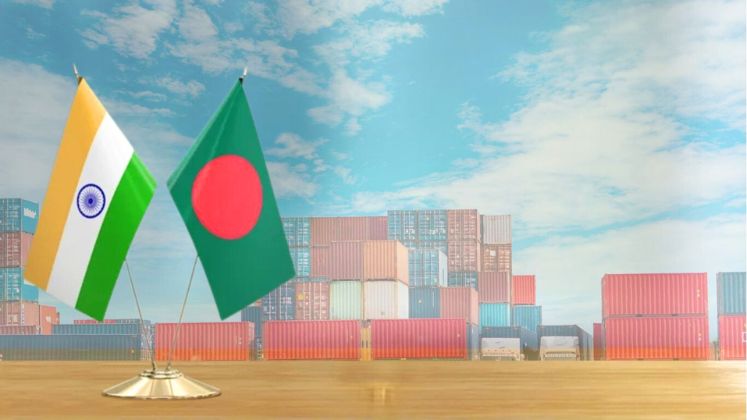
Trade ties with Bhutan, Nepal, and Myanmar may be hampered by India’s decision to terminate the transshipment facility for Bangladesh’s export goods. According to The Indian Express, this action follows Bangladesh’s growing support for the spread of Chinese economic clout in India’s strategically significant Northeast.
The Central Board of Indirect Taxes and Customs (CBIC) issued a notification on Tuesday, rescinding its earlier circular from 29th June 2020, which had allowed for the transshipment of Bangladeshi export cargo to third countries via Indian Land Customs Stations (LCSs) en route to Indian ports and airports. This facility had previously facilitated smoother trade flows for Bangladesh, particularly benefiting its exports to neighbouring countries.
With the withdrawal of this transshipment facility, Bangladeshi exporters are likely to face increased logistical challenges, including delays, higher costs, and uncertainties in their trade with Bhutan, Nepal, and Myanmar, which heavily rely on Indian infrastructure for their trade operations. The previous arrangement had provided a streamlined route, significantly reducing transit times and expenses.
Ajay Srivastava, a former trade officer and Head of the Global Trade Research Initiative (GTRI), raised concerns about the implications of this decision on India’s commitments under World Trade Organization (WTO) provisions. He highlighted that WTO rules, particularly Article V of the General Agreement on Tariffs and Trade (GATT) 1994, require member nations to allow freedom of transit for goods moving to and from landlocked countries, ensuring that such transit is free from unnecessary delays and transit duties.






